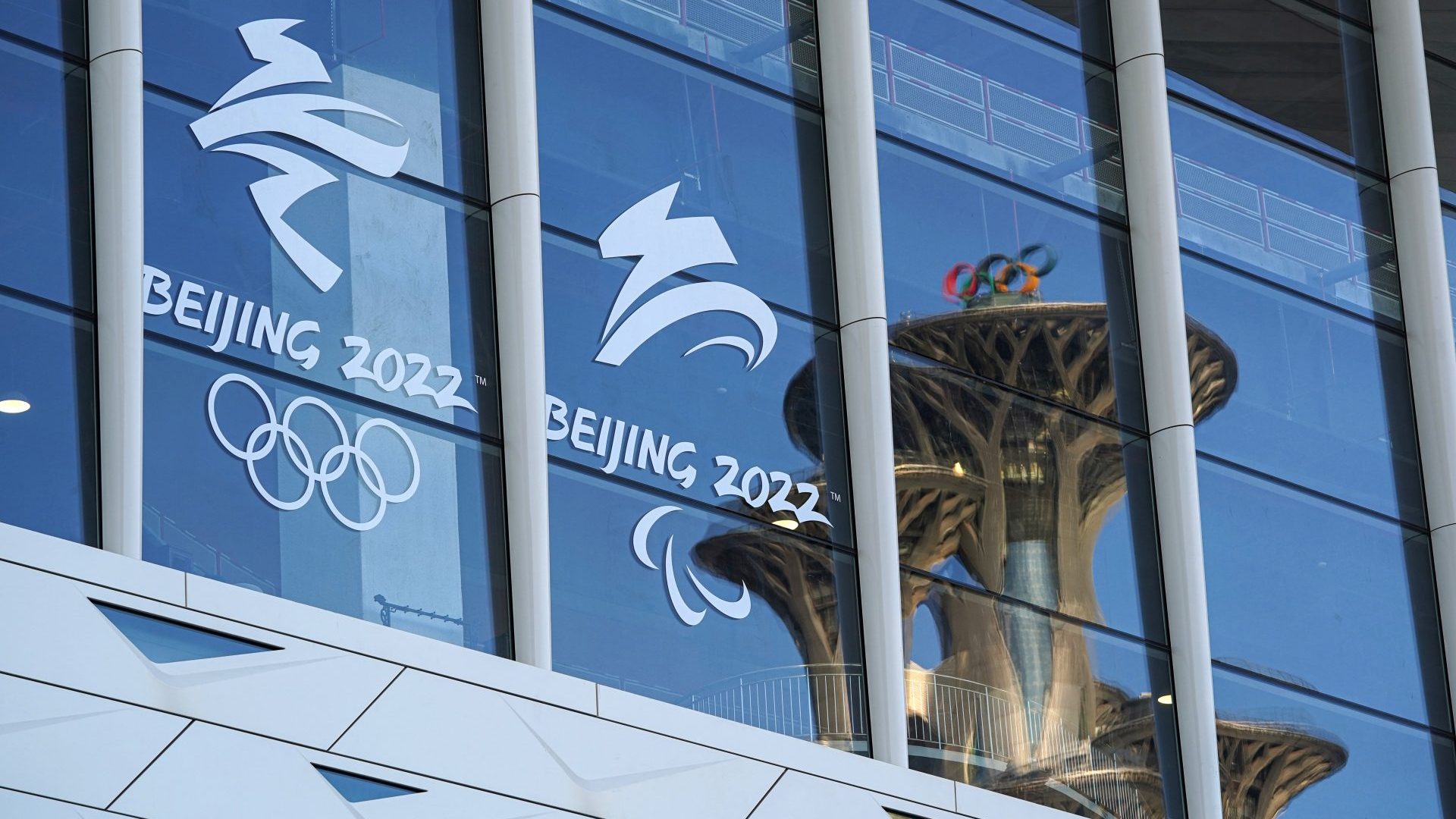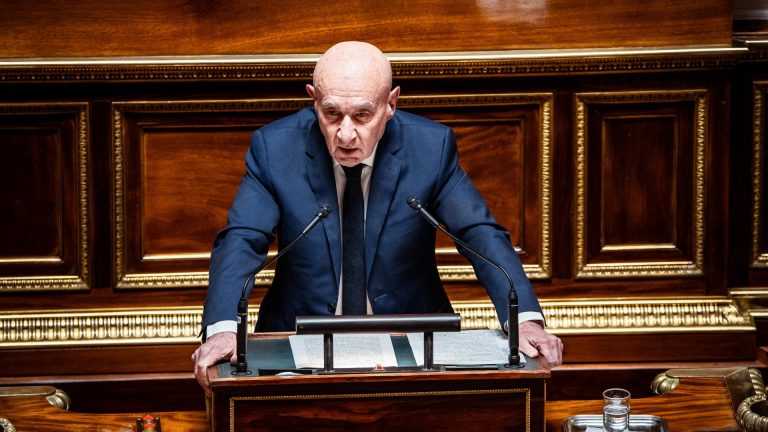The Twitter feed of the Beijing 2022 Winter Olympic games is decidedly perky. Ahead of Friday’s opening ceremony, jolly videos feature mascots Bing Dwen Dwen (giant panda) and Shuey Rhon Rhon (god knows) ‘working out’, showcasing Chinese-language lesson videos and mock-arguing over ”yummy” dumplings.
Shame about the journalists packing burner phones, trying to work out which words might get them in trouble, and hiding their “where’s Peng Shuai?” T-shirts. Even discreet attempts to highlight the plight of the tennis player who all but disappeared from view after making sexual harassment accusations against an official rank among the acts that athletes worry will get them into trouble under what has been described as China’s “Orwellian” surveillance state.
Covid also lurks. By the end of Wednesday – when the highest daily total so far was recorded – there had been 287 positive tests among Olympic personnel and athletes. China is still trying to keep alive its zero-Covid policy, and this means all competitors and staff in the Olympic Village are sequestered from the general public. As with Tokyo, this is not an Olympics for socialising and fun.
Publicly chirpy they may be, but Beijing 2022’s organisers will be presiding over a difficult few weeks in what some have speculated might be the most controversial games since Moscow 1980, when several countries boycotted the Soviet games, or even Berlin 1936.
China’s poor human rights record, especially in places such as Hong Kong, Tibet and Xinjiang – where it has been suppressing its Muslim Uyghur population – casts a pall. The games have been dubbed the “genocide Olympics” – a dark echo of the “Nazi Olympics” epithet for the 1936 games.
Questions about Peng Shuai are as likely to come up as sporting ones when the media meets International Olympic Committee president Thomas Bach. As may queries about the many “disappeared” – including actor and singer Zhao Wei, lawyer Xie Yang, Hong Kong book publisher Gun Minhai and citizen journalist Fan Bing, who vanished from public view after failing to toe the government line.
The Games are already underway, with China’s mixed doubles curling team clocking up a first-round victory in front of a selected crowd cheering enthusiastically despite Covid rules to clap instead. The sport was trending on Weibo for the first time. Other sports such as luge, ski jumping, skiing and ice hockey have started training or qualification sessions.
But because of Covid, the atmosphere is muted and the stands will be sparsely populated. They certainly won’t include official delegations from several countries staging a diplomatic boycott, including the United States and Britain.
Last time Beijing held an Olympic Games, in summer 2008, a laughing and joking US president George Bush was there. China was felt to be emerging into the world on the cusp of its own democratic revolution. While not a free country, China was expected to become more liberal through contact with democratic nations.
That has not happened. President Xi Jinping, who was in charge of delivering the games in 2008, has looked on as the West struggled since with the financial crash, refugees and other challenges before falling prey to loud but unimpressive populist leaders. He seems to have little interest in emulating the West now.
Unlike the previous summer games, there isn’t even an attempt to pretend — instead of designating various areas for protesters to make some noise, the government is cracking down. Known troublemakers are either detained or sent on forced holidays in their home villages.
Nearly 250 human rights groups and other non-governmental organisations joined forces in the weeks before the Winter Olympics to urge other governments to join the diplomatic boycott, and for athletes and sponsors not to legitimise human rights abuses.
“The IOC claims that sport and politics do not mix, but the Chinese government was the one that used the 2008 Beijing Olympics to serve its political interests,” said leading Tibet campaigner Bhuchung K. Tsering. “Tibetans in Tibet then took the risk to tell the world about this, but the IOC didn’t pay heed. The upcoming Beijing Olympics is a unique opportunity for the IOC and governments to empower their athletes and press Chinese authorities to abide by international norms.”
But sponsors, which include Airbnb, Coca-Cola, Samsung and Visa, have not spoken out. Many athletes are afraid to – at least until they have competed and are safely back home. Being told by their own federations to be careful what they say, and asked to leave all their devices at home in favour of temporary phones won’t have instilled confidence.
This sets up the quandary for athletes, who have worked for years to come to this point. For many it’s their only chance of shining on the highest – and four-yearly — world stage in their sport. Compromising that with political action that has a high career price.
In the 1980 Moscow Olympic Games, Sebastian Coe – now president of World Athletics and an IOC member – chose not to pay it, challenging Margaret Thatcher’s call to boycott her Soviet nemesis. His showdown with fellow Briton Steve Ovett over the 800 and 1500 metres became one of the most talked-about head-to-heads in sport. Controversially, Coe has called a boycott of Beijing 2022 “meaningless”.
There is an argument that the Olympics are a force for good, and participating promotes that. Yet the stellar performance of the black American athlete Jesse Owens in front of a spluttering Adolf Hitler didn’t change the fact that Germany spun the event as a foreign policy win, nor did it have any effect on the Nazis’ racist and genocidal behavior.
Sport might be celebrated for its unifying qualities, but big events are also big money making exercises and the desire to shun undemocratic countries and unsuitable hosts is often diametrically opposed to the urge to open up to new – and moneyed – nations. Exhibit A: the football World Cup in Qatar. Another name for this is “sportswashing”.
Still, despite the controversies, once the sports get going the attention shifts. Television audiences quickly forgot the Covid-induced scepticism of the Tokyo games and refocused their attention on the competitions, including successful new sports such as skateboarding.
Beijing has seven new events, including several mixed relays of the sort that found favour in Tokyo – part of the move towards gender equality. Here, they include the frenetic short track speed skating mixed relay, mixed team ski jumping, snowboard cross and freestyle aerials, where athletes take off from special ramps and perform jumps in mid air.
Challenging for gold in the most spectacular new event is China’s Eileen Gu, one of the faces of the Olympics. The photogenic California-born teenager is favourite for gold in the women’s “Big Air”, where skiers have one jump in which to set out all their trickiest airborne moves, including axis-shifting corkscrew twists.
Gu, 18, who is also favourite to win the halfpipe and slopestyle events, is one of several young women who are expected to set the games alight. Snowboarder Chloe Kim, now 21, was a breakout star at the last winter games in Pyeongchang, and is now back on form after a tough few years marked by injury, time out for university and a rebellion against the pressure of fame. Russians Kamila Valieva, 15, Anna Shcherbakova and Alexandra Trusova, both 17, are expected to dominate the women’s figure skating.
Others to watch include the elegant Japanese figure skater Yuzuru Hanyu, who has overcome injury to bid for what would be a record third successive Olympic gold medal in the men’s free, but he will be challenged strongly by on-form American Nathan Chen and his Japanese teammate Yuma Kagiyama.
Czehia’s Ester Ledecka, who became the first athlete to win gold medals in downhill skiing and snowboarding the last time round, is also defending her titles.
China has several contenders alongside Eileen Gu, including speed skater Wu Dajing, ice dancers Sui Wenjing and Han Cong, and another freestyle skier, Xu Mengtao.
They need to do well – and the Olympics need to go off without a hitch – for Xi Jinping, who, according to the New York Times, has, if anything, been more obsessive about the details of these games than the ones he officially ran.
Having grabbed power from the Communist Party’s Politburo in the years since Beijing 2088, he has upset many senior figures on the way and put himself in a position of ultimate responsibility.
A successful Games could distract from the deteriorating economy and the environment, and overshadow fears that China hasn’t after all banished Covid-19. A disappointment would put him in the firing line of critics – and could even spark a dangerous reaction from the touchy, powerful leader.
*Shuey Rhon Rhon is an “anthropomorphic Chinese lantern”










